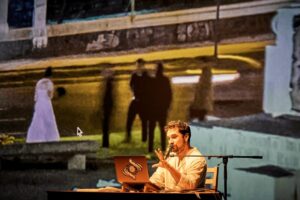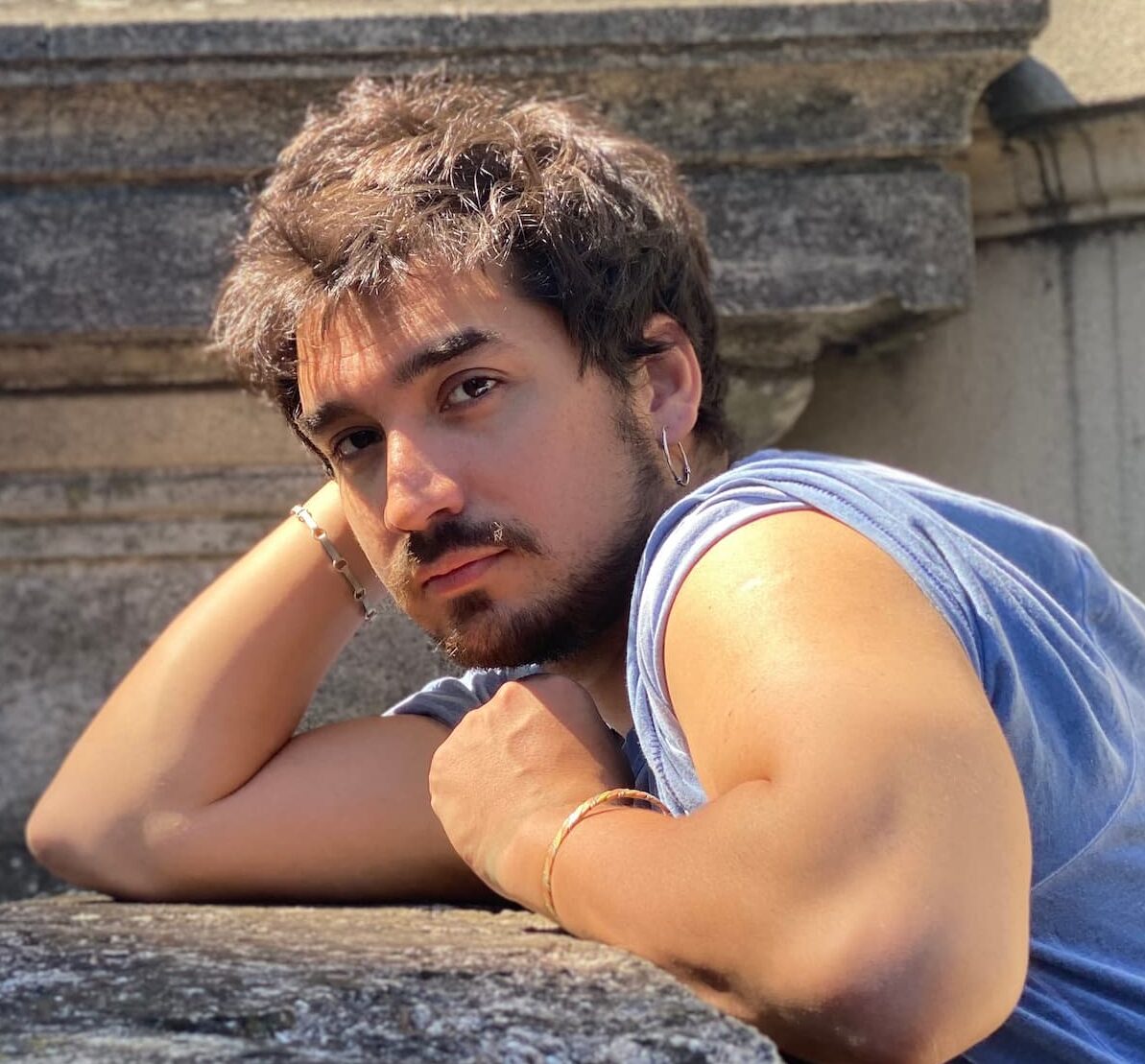Malicho Vaca Valenzuela describes himself as a “Chilean scenic artist working on themes of marginalization and revolution from what feels like the end of the world.”
At 36, he reflects on his evolving interests, now focused on challenging the limitations and censorship faced by his generation within Chile’s unique historical and geographical context. His work, deeply personal, explores themes like unexpressed love and his grandparents’ stories, often through the medium of digital archives—materials not traditionally preserved as cultural artifacts.
“I consider myself both an archaeologist and a cartographer,” Malicho explains. Chile’s geography – a country both the longest and narrowest in the world-plays a significant role in shaping his artistic perspective. He speaks of streets in Santiago and other Latin American cities that align with celestial events or ancient paths, indicating a rich indigenous heritage often overlooked due to historical erasure. This fascination with maps extends to the stories of resistance and survival, such as the braiding of hair into maps by some Colombian communities.
The onset of the COVID-19 pandemic unexpectedly shifted his creative process. Initially, Malicho’s exploration of his grandparents’ history was a private project, not intended for the public. “The play consists of 86 questions,” he notes, “not seeking answers but inviting reflection on my artistic journey.” This transformation into a public performance exposed his thoughts and uncertainties, creating a raw and intimate dialogue with his audience.
During the pandemic, he observed that the theatre industry primarily showcased well-established figures, sidelining many independent artists. This prompted him to ponder if he could create something meaningful with minimal resources – essentially just his computer and creativity. “Could I, with nothing, build something that resonates?” he asked. This introspective process became a study in resilience and creativity, ultimately leading to his work being embraced by the theatre industry. Malicho feels secure in this transition, noting that his creations were a product of personal labour rather than industry expectations. He expresses relief and satisfaction in being able to sustain himself through theatre, a career path that was not always guaranteed.

The move from online to live performances introduced new challenges and opportunities for discovery. Initially, the performances streamed on Zoom highlighted the audience’s silence, mirroring the isolation of the pandemic. Later, Malicho experimented with hybrid shows, combining in-person and online audiences, which brought unique dynamics to the performances. He discovered that reactions varied across different countries, but the core themes of memory and loss resonated universally. This global reception encouraged him to refine his narratives, making them more poetic and accessible.
“Tenderness is a crucial element in my work,” Malicho asserts. He critiques contemporary theatre for often failing to address societal issues effectively, sometimes through confrontation rather than compassion. His goal is to approach even the harshest realities with a sense of tenderness, encouraging thoughtful engagement from the audience. He cites his play “Reminiscencia” as an example—though it deals with difficult themes like isolation, aging, and societal neglect, it does so through a gentle and evocative narrative.
Malicho sees Chile and Latin America as regions marked by unhealed wounds, such as the unresolved disappearances from past dictatorships and ongoing exploitation of natural resources by foreign powers. Sharing these stories with a global audience is, for him, a crucial act of bearing witness and seeking justice. He believes that the history and politics of his country must be discussed, not only to address past and present injustices but also to foster a broader understanding.
His creative process often involves transforming raw archival materials into cohesive narratives. During the pandemic, he focused on preserving the essence of theatre, emphasizing its ephemeral nature and the power of the spoken word. “Each performance is unique,” he says, “shaped by my emotions and the context of the moment.” This approach keeps his work dynamic and responsive, fostering a dialogue with the present.
The interplay between humour and seriousness in his performances often emerges organically from audience interaction. Initially, Malicho did not anticipate the humorous aspects, but he quickly learned from audience reactions. “These interactions, particularly the silences, create a shared space of reflection and connection,” he explains, noting that this interaction is what makes each performance a living, evolving experience.
Festival d’Avignon
Gymnase du Lycée Mistral, Avignon, France
Until 21th of July 2024
Distribution
With Rosa Alfaro, Malicho Vaca Valenzuela, Lindor Valenzuela
Text, creation, direction, dramaturgy and video Malicho Vaca Valenzuela
Production
Production Ébana Garín, Luis Guenel, Roni Isola
With the support of the Institut Français du Chili for the 78th edition of the Festival d’Avignon
Photo credit : Christophe Raynaud de Lage / Festival d’Avignon
Interview interpreter : Margot Rodriguez

